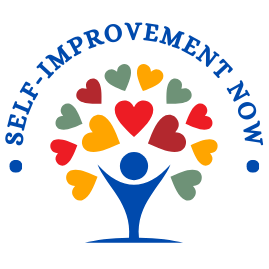Cultivating Empathy And Understanding Among Family Members
Understanding the dynamics within a family is crucial for fostering empathy and understanding among its members. In today’s uncertain world, it’s easy to get caught up in our own lives and overlook the importance of emotional connections within our families. Lack of communication, unresolved conflicts, and misunderstandings can create a toxic environment that jeopardizes the well-being of everyone involved. By cultivating empathy and understanding, families can strengthen their bonds, nurture positive relationships, and promote a healthy and supportive environment for all members. This blog will probe into effective strategies to enhance empathy and understanding among family members, ultimately building a stronger and more connected family unit.
Key Takeaways:
- Listen actively: Encourage family members to share their thoughts and feelings without judgment or interruption. This helps in fostering mutual understanding and empathy.
- Practice empathy: Put yourself in the shoes of your family members to better understand their perspectives and emotions. This can strengthen family bonds and resolve conflicts effectively.
- Communicate openly: Create a safe space where family members feel comfortable expressing themselves and resolving misunderstandings. Effective communication is key to building empathy and understanding among family members.

The Roots of Empathy
Recognizing Emotions in Ourselves and Others
On the journey to cultivating empathy within our families, it is crucial to start by recognizing emotions, both in ourselves and others. This self-awareness forms the foundation for understanding the feelings and perspectives of those around us. When we can identify and acknowledge our own emotions, we become better equipped to empathize with the experiences of our family members.
The Role of Active Listening in Developing Empathy
On the path to fostering empathy among family members, active listening plays a vital role. By actively listening to our loved ones without judgment or interruption, we demonstrate that we value their emotions and thoughts. This practice creates a safe space for open communication and encourages a deeper understanding of each other’s feelings.
To develop empathy within the family, active listening involves not only hearing the words spoken but also paying attention to the emotions behind them. Show genuine interest in what the speaker is saying, maintain eye contact, and provide feedback to show understanding. Empathy flourishes in an environment where every family member feels heard and respected.
Communication Strategies
Non-Violent Communication Techniques
To foster empathy and understanding among family members, it is crucial to employ non-violent communication techniques. This involves active listening, using “I” statements, and avoiding blame or judgment in conversations. By focusing on observations, feelings, needs, and requests, individuals can express themselves honestly while respecting others’ perspectives.
The Art of Expressing Needs and Emotions
Strategies for expressing needs and emotions effectively can greatly improve communication within families. By practicing self-awareness and vulnerability, individuals can articulate their desires and feelings in a clear and respectful manner. This involves recognizing and acknowledging one’s emotions before expressing them to others, leading to more authentic and meaningful interactions.
Another important aspect of this strategy is recognizing that each family member has unique needs and emotions that deserve to be heard and validated. By creating a safe space for open expression and mutual understanding, families can cultivate empathy and strengthen their relationships.

Building Bridges
Conflict Resolution and Reconciliation
Not every family is free of conflicts, and disagreements can arise among family members. However, the key to cultivating empathy and understanding is through effective conflict resolution and reconciliation. It’s important to approach these situations with an open mind and a willingness to listen and understand each other’s perspectives. By addressing conflicts openly and working towards reconciliation, family members can strengthen their bonds and foster a greater sense of empathy and understanding.
Empathy in Diverse Family Structures
The concept of empathy is crucial in diverse family structures, where individuals may come from different backgrounds, beliefs, or experiences. The ability to empathize with one another allows family members to bridge the gaps that may exist due to these differences. Empathy helps to create a sense of unity and connection within the family, fostering a more supportive and harmonious environment where everyone feels understood and valued.
Structures may vary widely, from blended families to LGBTQ+ families, and each comes with its unique dynamics and challenges. Empathy plays a vital role in navigating these differences, as it allows individuals to put themselves in each other’s shoes and appreciate the diverse perspectives that each family member brings to the table. By acknowledging and embracing these differences with empathy, families can build stronger relationships and foster a greater sense of understanding and acceptance among their members.
Applying Empathy in Everyday Life
Empathy and Parenting
Everyday parenting presents numerous opportunities to cultivate empathy and understanding among family members. Despite the challenges that come with raising children, practicing empathy can greatly strengthen the parent-child relationship. By actively listening to their children’s feelings and perspectives, parents can create a safe space for open communication and emotional connection.
Empathy Between Siblings and Across Generations
Parenting involves not only fostering empathy between parents and children but also among siblings and across generations. Siblings who learn to empathize with one another develop stronger bonds and are better equipped to resolve conflicts peacefully. Additionally, bridging the generation gap through empathy fosters mutual respect and understanding, creating a harmonious family dynamic.
When siblings empathize with each other, they build necessary life skills such as communication, conflict resolution, and emotional intelligence. This not only benefits their current relationship but also lays the foundation for healthier interactions in their future interactions with others. By promoting empathy across generations, families can uphold traditions while adapting to modern values, creating a cohesive family unit that values understanding and compassion above all.
Conclusion
To sum up, cultivating empathy and understanding among family members is crucial for fostering strong and healthy relationships. By actively listening, practicing empathy, and being willing to see things from each other’s perspectives, families can overcome misunderstandings and conflicts. These efforts not only strengthen family bonds but also create a more supportive and harmonious family environment. It is important for family members to work towards creating a culture of empathy, respect, and understanding within the family to ensure a nurturing and loving home environment.
FAQ
Q: Why is cultivating empathy and understanding important among family members?
A: Cultivating empathy and understanding among family members is crucial for building strong relationships, fostering communication, and resolving conflicts effectively. It helps create a supportive and loving environment where family members can feel heard, respected, and valued.
Q: How can I promote empathy and understanding within my family?
A: You can promote empathy and understanding by actively listening to each other, practicing open and honest communication, showing compassion and empathy towards one another’s feelings and experiences, and being willing to see things from each other’s perspectives. It’s important to create a safe space where everyone feels comfortable expressing themselves without judgment.
Q: What are some benefits of having a family culture of empathy and understanding?
A: A family culture of empathy and understanding leads to stronger emotional connections, increased trust and intimacy, improved conflict resolution skills, and a greater sense of unity and support among family members. It also helps promote mental and emotional well-being, reduces misunderstandings and disagreements, and creates a harmonious and loving family environment.




